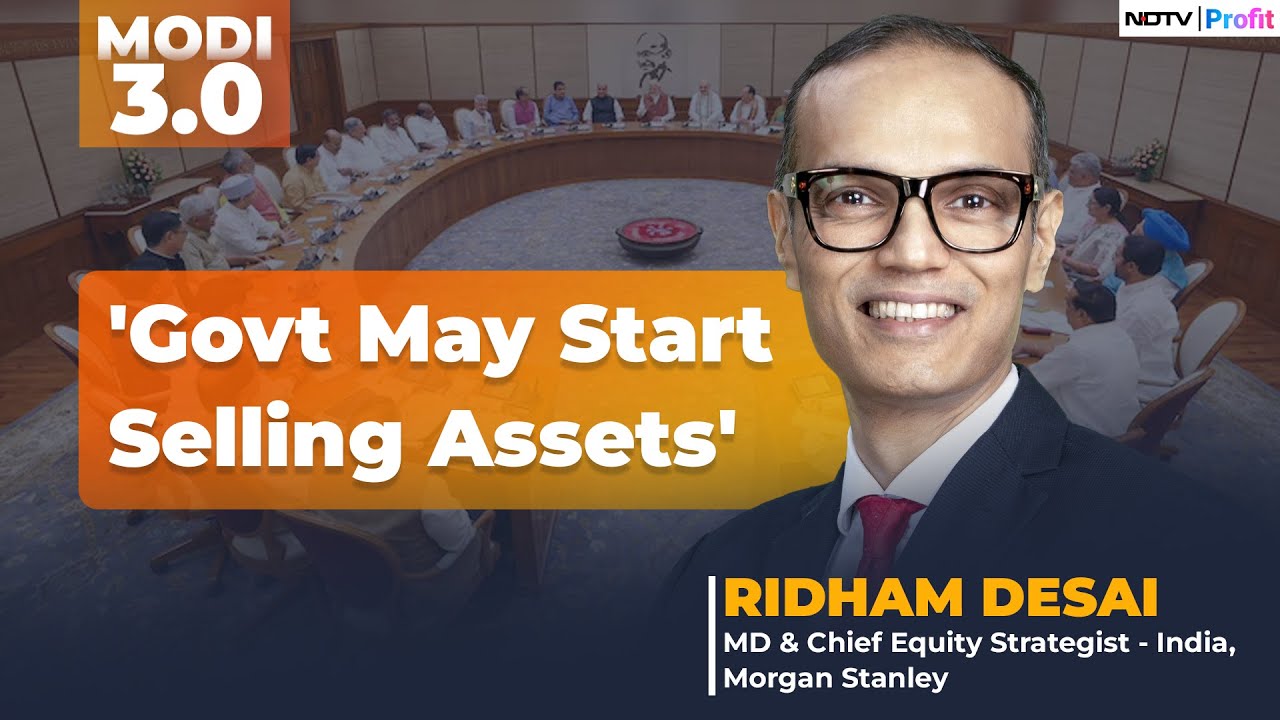Economics Roundtable: Central Banks Turn the Corner
Summary
TLDRIn the latest Morgan Stanley podcast, the global economics team discusses the economic outlook for late 2024, highlighting key developments across the US, Europe, and Asia. The Fed's recent 50 basis point rate cut suggests a shift toward easing, while the ECB anticipates further cuts amidst declining inflation. In Asia, the BOJ is expected to continue its rate hikes, contrasting sharply with China's struggle against a debt deflation cycle, necessitating substantial fiscal stimulus. Overall, the conversation emphasizes the balancing act of central banks as they navigate growth and inflation challenges in an evolving global landscape.
Takeaways
- 😀 The global economy is performing largely as expected, with the U.S. on track for a soft landing despite a slightly softer labor market.
- 📉 The Federal Reserve (FED) cut interest rates by 50 basis points in September and plans to continue with 25 basis point cuts, depending on labor market strength.
- 🇪🇺 The European Central Bank (ECB) has revised its outlook, focusing more on growth as inflation indicators trend downward, with potential rate cuts in October.
- 📊 ECB President Lagarde indicated reduced concern over structurally high services inflation, allowing for a shift towards growth considerations.
- 📈 The Bank of Japan (BOJ) raised interest rates for the first time, with expectations of further hikes contingent on inflation and wage growth data.
- 🏢 Japan's reflation story remains intact as policymakers are committed to overcoming deflation.
- 🇨🇳 China is grappling with a debt deflation cycle, necessitating aggressive fiscal easing to boost consumption amid new policy stimulus.
- 💰 Recent Chinese policy measures include monetary easing and support for equity and property markets, but more is needed to stimulate household spending.
- ⚖️ Market volatility in August stemmed from the BOJ's rate hike, but communication from the bank helped stabilize market reactions.
- 🗳️ Future discussions will focus on the implications of the upcoming U.S. election for the macroeconomic landscape both domestically and globally.
Q & A
What is the overall outlook for the global economy as of October 2024?
-The global economy is performing largely as expected, with the U.S. moving toward a soft landing, Japan maintaining its reflation story, and Europe experiencing tepid growth. However, China is facing challenges due to a debt deflation cycle.
What recent actions has the Federal Reserve taken regarding interest rates?
-The Federal Reserve cut interest rates by 50 basis points in September 2024, marking the first rate cut of the cycle, and is expected to implement a series of 25 basis point cuts if the labor market remains stable.
How is the ECB responding to inflation and growth in Europe?
-The European Central Bank has revised its outlook and is expected to cut rates in October 2024 due to a decline in inflation indicators and a focus on growth, having already cut rates twice previously.
What is the current situation of the labor market in the U.S.?
-The U.S. labor market is showing signs of being slightly softer than expected, which may influence future decisions regarding interest rate cuts by the Federal Reserve.
What are the implications of the Bank of Japan's recent policy changes?
-The Bank of Japan raised interest rates for the first time, causing market volatility, but is expected to proceed cautiously with further hikes, monitoring inflation and wage data.
What policy measures has China implemented to address its economic challenges?
-Chinese policymakers have enacted significant monetary policy easing, announced support packages for equity markets, and introduced measures for the property market to combat the ongoing debt deflation cycle.
What is the anticipated effect of fiscal stimulus in China?
-While recent measures are positive, a more substantial fiscal stimulus of approximately 10 trillion RMB over two years is needed to effectively boost household consumption and combat deflation.
How does the ECB's mandate differ from the Federal Reserve's?
-The ECB primarily focuses on controlling inflation, while the Federal Reserve has a dual mandate that includes both managing inflation and promoting maximum employment.
What challenges does Japan's economy currently face, according to the discussion?
-Japan's economy faces challenges related to the need for sustained wage growth and rising services inflation, as well as the implications of a declining population affecting the property sector.
Why is there a need for ongoing discussion about the upcoming U.S. elections?
-The upcoming U.S. elections could have significant implications for macroeconomic policies in the U.S. and globally, warranting further examination in future discussions.
Outlines

Этот раздел доступен только подписчикам платных тарифов. Пожалуйста, перейдите на платный тариф для доступа.
Перейти на платный тарифMindmap

Этот раздел доступен только подписчикам платных тарифов. Пожалуйста, перейдите на платный тариф для доступа.
Перейти на платный тарифKeywords

Этот раздел доступен только подписчикам платных тарифов. Пожалуйста, перейдите на платный тариф для доступа.
Перейти на платный тарифHighlights

Этот раздел доступен только подписчикам платных тарифов. Пожалуйста, перейдите на платный тариф для доступа.
Перейти на платный тарифTranscripts

Этот раздел доступен только подписчикам платных тарифов. Пожалуйста, перейдите на платный тариф для доступа.
Перейти на платный тарифПосмотреть больше похожих видео

US बाज़ार मे सुपर ड्रामा 🔥 SHARE MARKET LATEST NEWS TODAY • TOMORROW ANALYSIS • STOCK MARKET INDIA

Prospek Ekonomi 2024: Tantangan dan Peluang

Morgan Stanley's Ridham Desai On Modi 3.0 Outlook, Policy Making & The Impact On Stock Markets

Menkeu Bahas soal Kondisi Ekonomi Terkini dan Keuangan Negara Jelang Pergantian Pemerintahan

S&P 500, Nasdaq See A Relief Rally On Friday, Asia Trades Higher; Strong Start On D-Street?

ROI AFTER BITCOIN 2024 HALVING (I UNDERESTIMATED IT).
5.0 / 5 (0 votes)
